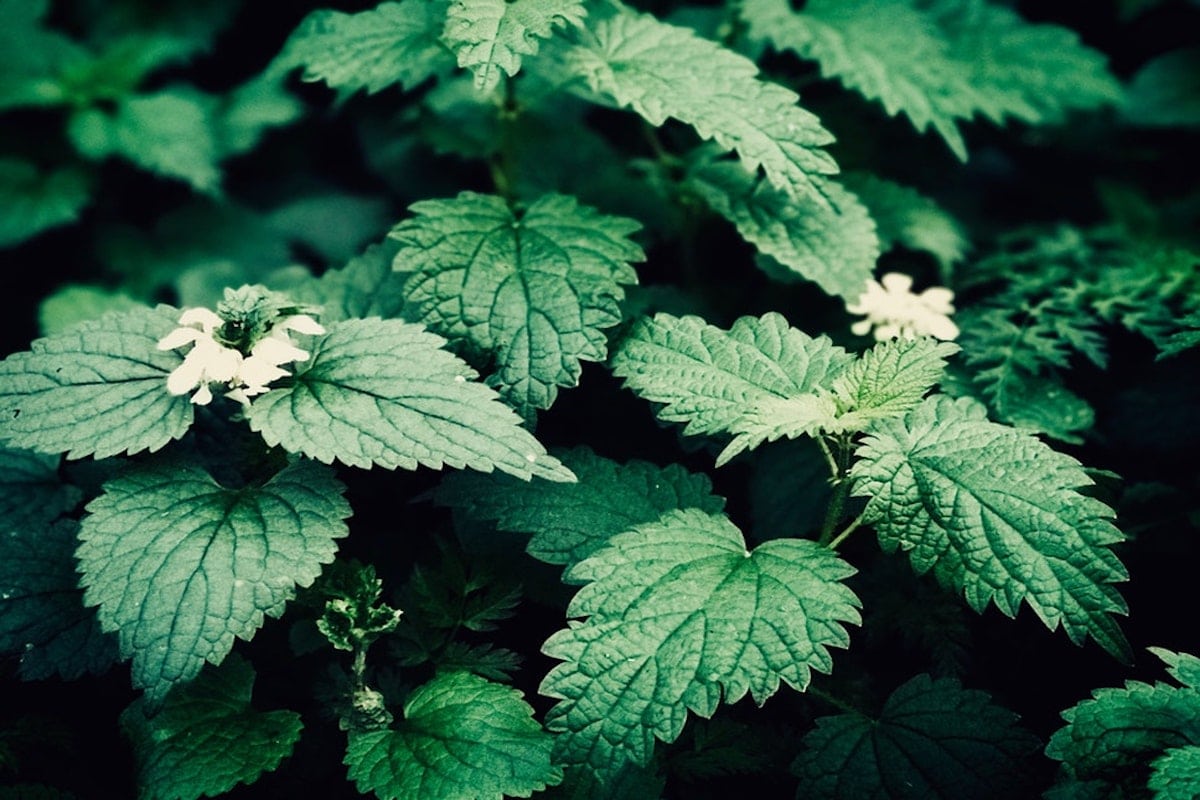
The term “nettle” is used for a number of different plants in the genus “Urtica” that have
stinging hairs. These include the ball nettle, bull nettle, flame nettle, hedge nettle, painted nettle, and several others. Not all plants of the species sting if you touch them, but most do.
An herbaceous, flowering plant that blooms every year, nettle is native to Europe, Asia, northern Africa, and North America, with hollow stinging hairs on the leaves and stems. These hairs act like needles, injecting histamine and other chemicals when touched by humans or animals, creating a stinging sensation that won’t soon be forgotten. Still, despite this rather mean reputation, the plant is actually good for humans in a number of ways.
Growing about 3–7 feet tall, nettle thrives in the summer and dies down in the winter, with green, heart-shaped leaves that average four inches long and wiry, green stems. The leaves are serrated, and the flowers are yellow or pink. You may see species of nettle as a weed in your garden, but it has actually been part of herbal medicine for centuries.
internal health benefits of nettles
Traditional herbalists recommend stinging nettle as a treatment for arthritis and gout, anemia (because it’s high in iron), allergies, and urinary problems. Nettle tea is said to help prevent seasonal allergies and improve symptoms like sneezing and itching. A 2002 study by Italian researchers also noted that it may be effective in helping to reduce blood pressure.
Nettle may be beneficial for urinary tract infections and kidney stones as it has a diuretic effect. The leaves and stems have been helpful in easing some digestive ailments. The leaves are said to have a taste similar to spinach, and can be found in many Indian and Napalese dishes. Stinging nettle soup is often served in Northern and Eastern Europe.
Today, perhaps the most common use of nettle in the U.S. is in herbal teas. Nettle teas are said to help promote healthy pregnancy, to tame inflammation, to improve bladder and kidney functions, and to combat allergies and hay fever.
nettle's benefits to the skin
Applied topically, nettle has a number of benefits for the skin.
Antioxidant: Like most plants, nettle has a number of protective antioxidants that help protect from environmental stressors, providing anti-aging benefits.
Hair Health: Nettle is said to have a stimulating effect on the scalp, and is often found as a rinse for the hair.
try it!
We used nettle leaves in our Anti Aging Serum for their antioxidant and anti-aging benefits. You can also find it in our new Probiotic Serum with Tremella. Even if you have sensitive skin, this ingredient will help restore a more calm, healthy feeling.

Комментариев нет:
Отправить комментарий